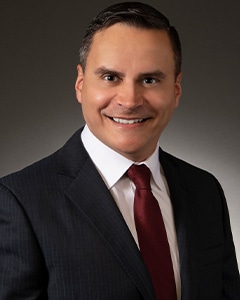Understanding the Probate Process

Probate is the process by which a court supervises and directs that the affairs of a deceased person, also known as the decedent, are fully administered in an orderly and just manner. Probate covers several major issues:
First – Did the decedent die testate; in other words, with a valid will in effect at the time of death, i.e., the decedent’s last will. Or did the decedent die intestate; in other words, without a valid will at the time of death?
Second – Who will be in charge of administering the decedent’s probate estate, including carrying out the decedent’s wishes as stated in the last will? In a testate proceeding, this is usually the person named as executor in the last will and is called the personal representative in probate estate proceedings in Nevada. In an intestate proceeding, who should be in charge of administering the estate? This person is called the administrator. Regardless if testate or intestate, a personal representative or an administrator must be appointed by the court to administer the estate.
Third – Who are the devisees named under the last will whom the decedent wished to inherit the decedent’s property? If the decedent died intestate, who are the heirs under Nevada’s intestate succession laws? For example, in Nevada, if the intestate decedent died with a surviving spouse and two or more children, the estate’s assets would go 1/3 to the surviving spouse, and the remaining 2/3 would be split into as many equal shares as there are children, one for each child.
Fourth – Did the decedent leave behind a valid trust? A trust is a legal instrument similar to a last will but with greater flexibility, and added ability to administer assets not only upon the decedent’s death (like a last will), but also during the decedent’s life, and for many future generations if so desired. In some cases, the decedent dies with a valid trust (holding the decedent’s assets) and without out any probate assets—that is, property held in or titled to decedent’s name at time of death, including bank, savings, and investment accounts (and insurance policies) that the decedent did not, during his or her life, transfer to a trust or for which the decedent did not name a payable-on-death beneficiary—and thus no probate proceeding may be necessary. In such case, who does the trust appoint as the trustee to administer the trust upon the decedent’s death and pursuant to the terms of the trust instrument? Who does the trust identify as its beneficiaries to whom the decedent, also known as the trustor (or settlor) of the trust, intended to receive the decedent’s property held in the trust and under what conditions? In many instances, a decedent’s last will devises that any and all decedent’s probate assets ‘pour over’ to the trust to be administered under the terms of the trust.
Fifth – What are the decedent’s probate assets? An inventory must be compiled of all such assets, including but not limited to homes, land, financial accounts (including, bank, savings, investment brokerage, and retirement), vehicles, jewelry, collectibles, cryptocurrency, claims to property, ownership shares in businesses, intellectual property, accounts receivables, legal claims, etc… If the total value of the probate estate is greater than $300,000, the estate will be administered under a general administration. If less than $300,000, the estate may be administered under a summary administration, usually resulting in a slightly faster estate proceeding. If the estate is valued between $25,000 and $100,000, it may be set aside without administration, leaving only minimal requirements for the personal representative or administrator to undertake. Smaller estates require even less.
Sixth – What liabilities did the decedent have at death? All debts and liabilities, including but not limited to credit card debts, unpaid notes payable, and unpaid judgments, must be identified.
In administering the probate estate, unless certain exceptions or waivers apply, the personal representative (or administrator) is to ensure that all the following steps are taken.
- The last will must be located and presented to the court for it to be proved to probate as decedent’s last will, and regardless if testate or intestate, to commence the probate estate proceeding. The individual must then obtain from the court the appointment of himself or herself as the estate’s personal representative (or administrator), and be issued the letters testamentary (or letters of administration if intestate), which the personal representative (or administrator) can present to third parties such as banks when handling the decedent’s affairs.
- All interested persons to the probate estate, including those individuals (and any charities) named as devisees or heirs, as well as those family members whom the decedent chose to disinherit, i.e., those family members left out of the will or trust who might otherwise be devisees, heirs, or beneficiaries, must be identified, located, and notified via first class mail with copies of the petition to the court to commence the probate estate, and of the notice of the court hearing on the petition. Any unknown interested persons must also be notified via publication in a local newspaper as to such hearing. This notice enables an interested person to participate in the proceeding, including to timely contest the validity of the will if the interested person believes the will was created when the decedent, often elderly, lacked the required mental capacity to execute the will, or was unduly influenced or otherwise defrauded by one of the devisees when signing the will.
- All known and unknown creditors of the decedent (or the decedent’s estate) must be given 90 days (in a general administration, or 60 days in a summary administration) to file a creditor claim against the estate or forever waive such claim. Known creditors are notified via first class mail of such window, and unknown creditors are provided the same via publication in a local newspaper.
- All applicable tax returns must be timely filed, including any estate tax return for the decedent (usually applicable only for large estates, i.e., over $13.61 million for a decedent dying in 2024), and including any income tax returns for the decedent individually, as well as for the decedent’s probate estate if it earned more than $600 in annual gross income during the course of its administration.
- An accounting and report of the probate estate administration must be prepared and shared with all interested persons, and approved by the court.
- All expenses of the probate estate’s administration, including any and all attorneys’ fees and costs, accounting and tax return preparation fees, and expenses relating to the sale of real and personal property, may require court approval, and then must be fully paid or settled.
- After the probate estate’s administration expenses are paid, all taxes, including any estate or income taxes, are to be fully paid or settled.
- After the administrative expenses and taxes are paid or settled, all creditor claims, to the extent deemed valid, must be fully paid or settled.
- After the administrative expenses, taxes, and creditor claims are fully paid or settled, all devisees or heirs must receive their bequests or inheritances pursuant to the decedent’s wishes as stated in the last will or as Nevada law prescribes.
- After such distributions are made to the devisees and/or heirs, the estate must be closed.
To ensure that all steps occur orderly, as required by law and as best practices counsel to resolve, minimize, or avoid disputes against the estate or its personal representative (or administrator), or among the interested persons, the probate process can be and often is very time-consuming. This is especially so with estates that are larger or more complex. It often requires retaining an experienced probate attorney to help the client navigate through the process, in order to avoid costly and stressful pitfalls that might ultimately frustrate the decedent’s wishes by diluting and delaying the estate shares going to the rightful devisees or heirs.
For legal assistance on probate estate administration, please call us at Solomon Dwiggins Freer & Steadman, Ltd.

